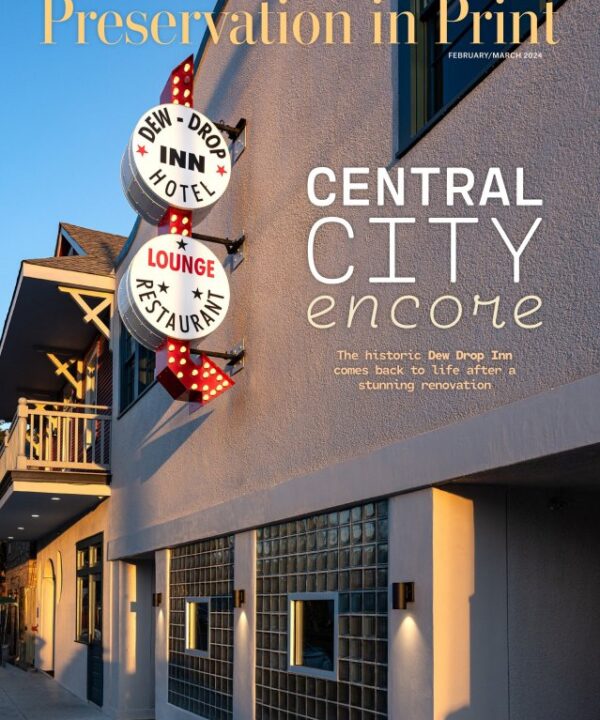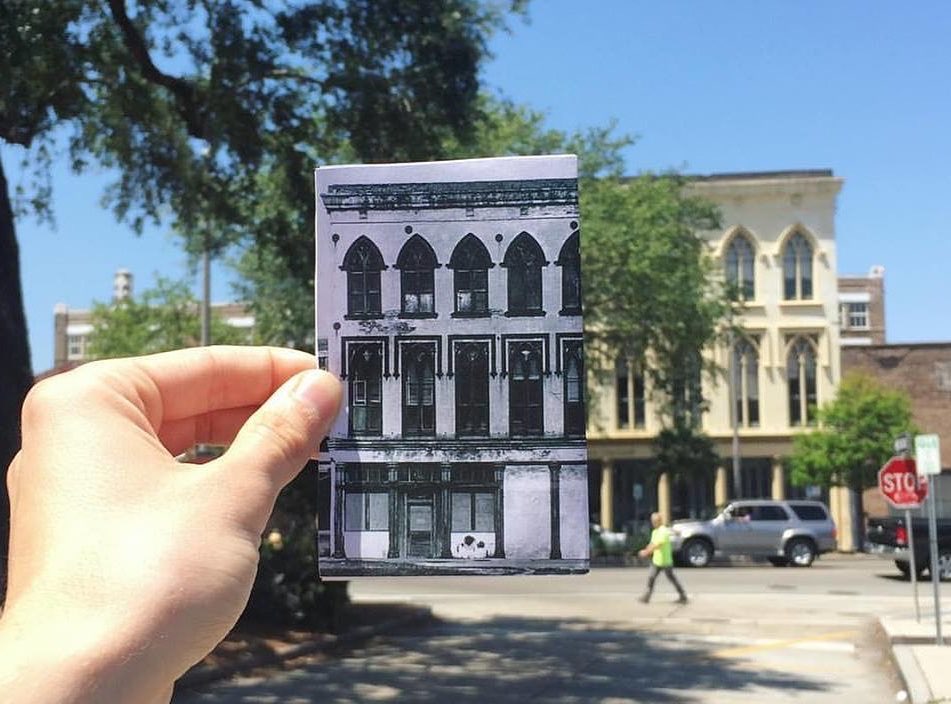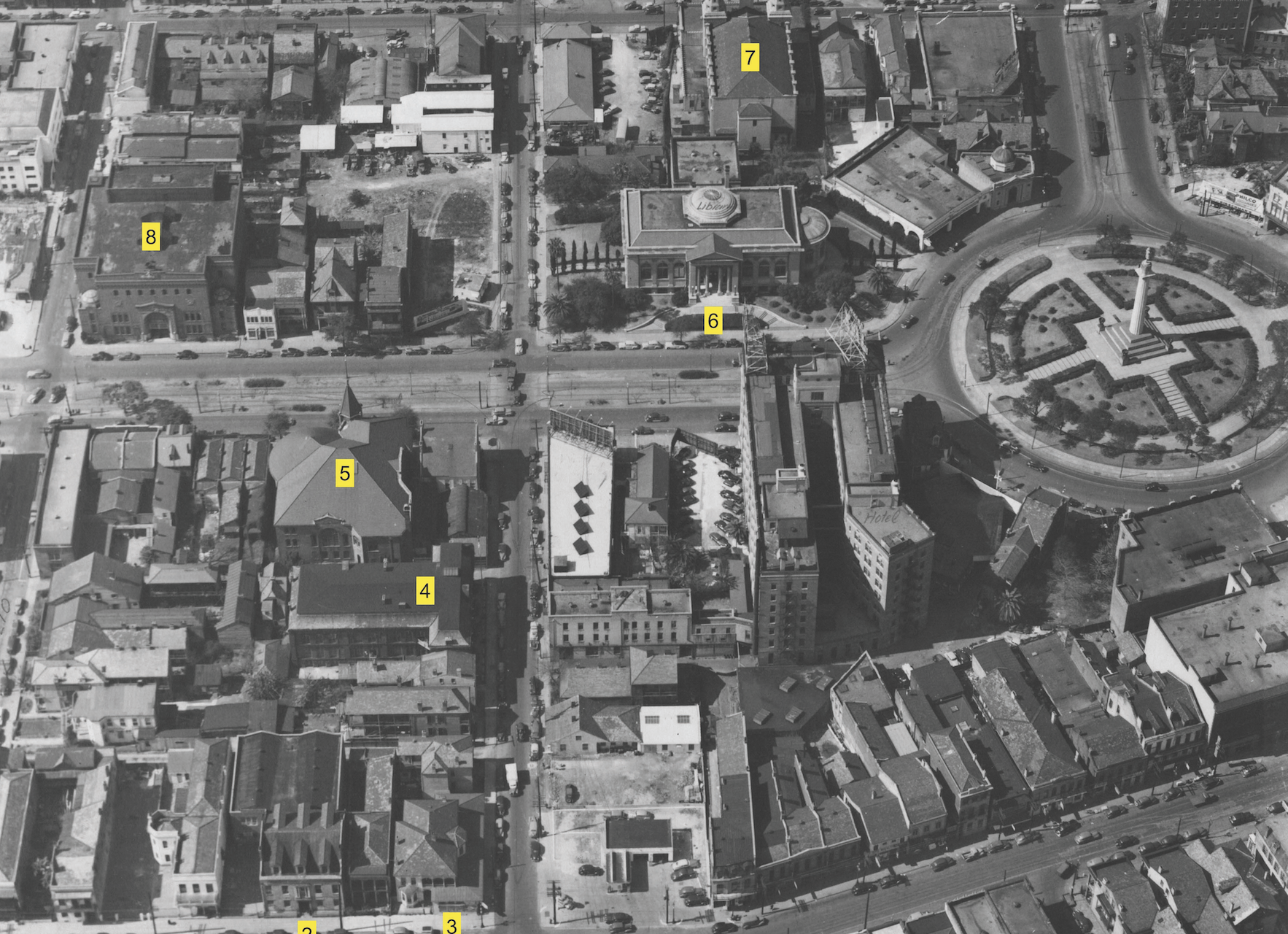This story appeared in PRC’s Preservation in Print magazine. Interested in getting more preservation stories like this delivered to your door? Become a member of the PRC for a subscription!
A nonprofit focused on water and drainage solutions for New Orleans is proposing a new stormwater fee on all properties to raise revenue dedicated to “integrated water resource management.” The Water Collaborative’s new Water Justice Fund report includes 12 policy recommendations, including a proposed stormwater fee paid by all property owners, including tax-exempt property holders.
Tax-exempt properties, such as buildings owned by religious or nonprofit organizations, cause New Orleans to lose $123 million in drainage funds, the Collaborative said. “Estimates suggest the City of New Orleans loses tens of millions of dollars in annual drainage funding due to tax exemptions but needs at least $54.5 million annually to adequately manage drainage,” the report said.
“Residents of Southeast Louisiana face mounting challenges caused by or connected to water,” the report said. “From 1895 to Hurricane Katrina, and continuing into the present day, Southeast Louisiana has heavily relied on engineered systems designed to quickly pump water away from residential areas. The historical use of impervious materials, such as concrete sidewalks, driveways, and parking lots, has contributed to the degradation of our natural environment. Stormwater management leaders, regionally, are learning that we must invest in more sustainable ways to live with our natural environment.”
The Collaborative’s proposed stormwater fee would allow New Orleans to create more gray infrastructure, such as pipelines, ditches and retention ponds, and green infrastructure, such as land conservation, rain gardens and planter boxes.
This is not the first time a stormwater fee has been proposed for New Orleans. According to the Collaborative, a stormwater fee proposal fell through in 1995 after a vote, and another proposal fell through in 1998. Yet, 41 states already have stormwater fees.
The Collaborative suggests phasing in the fee, with tax-exempt nonprofits and businesses paying first. With time, other organizations and all residents would follow. Property owners’ fees would depend on how much “impervious area” they have on their land. Impervious area refers to concrete streets, parking lots and other surfaces which prevent water absorption. The Collaborative’s report includes hardship exemptions and options for incentives. Property owners could reduce their fee and earn credits by building green infrastructure and getting involved in green initiatives.
To create its policy recommendations, the Collaborative devoted three years to research. It consulted stormwater management and legal experts, received feedback from City Council members and reviewed literature. The group conducted workshops with residents to gauge their feelings about stormwater management and held three focus groups and five group gatherings for residents’ input. This feedback helped create The Water Justice Fund of New Orleans campaign.
Residents care about equitable stormwater management and accountability, the report said. “Our policy recommendations are released, but our work is just beginning,” said Rebecca Malpass, the Collaborative’s policy and research director. “We will continue supporting community buy-in for these recommendations through a targeted media campaign and town halls and other community events in each district.”
Learn more about The Water Justice Fund and access The Water Collaborative’s full report at waterjusticeneworleans.org.
Hope Slocum is PRC’s Communications Intern






